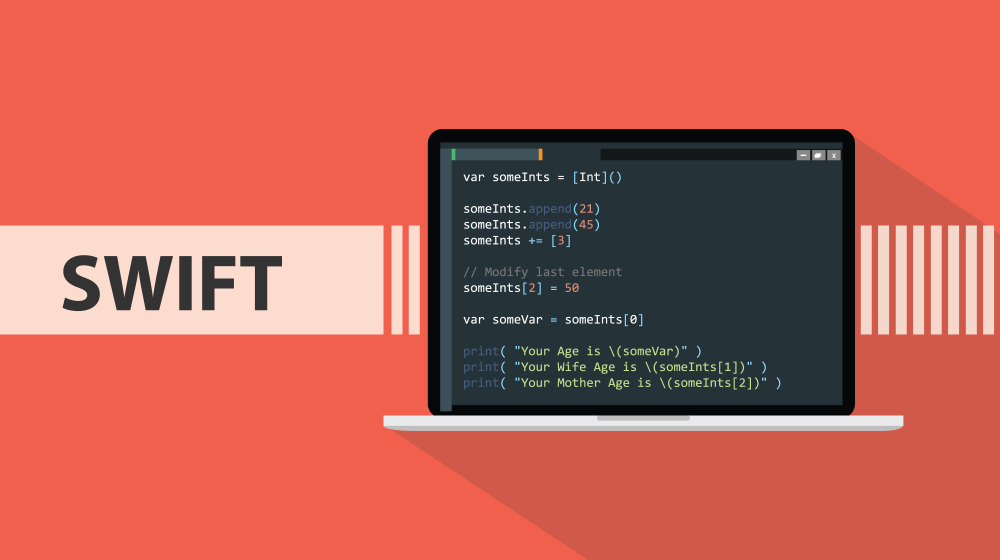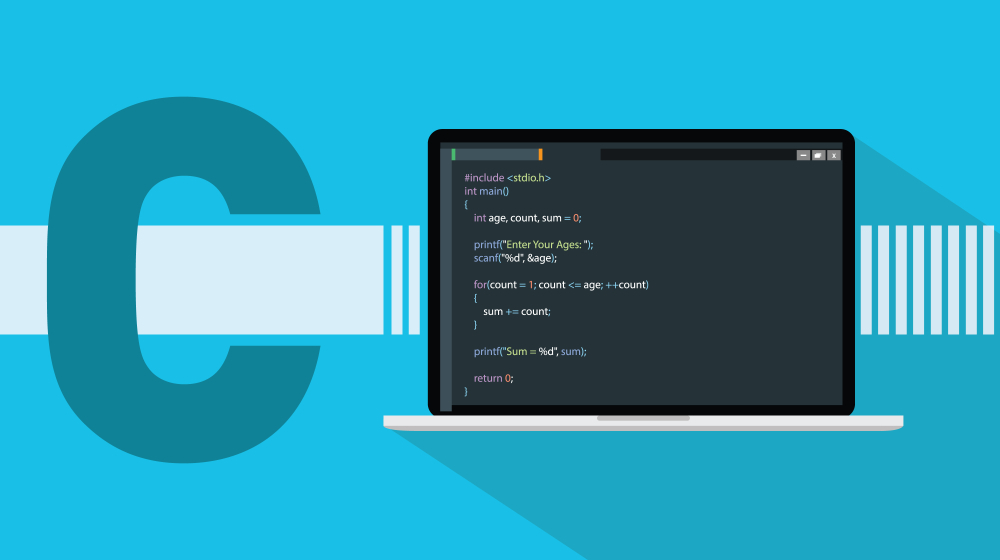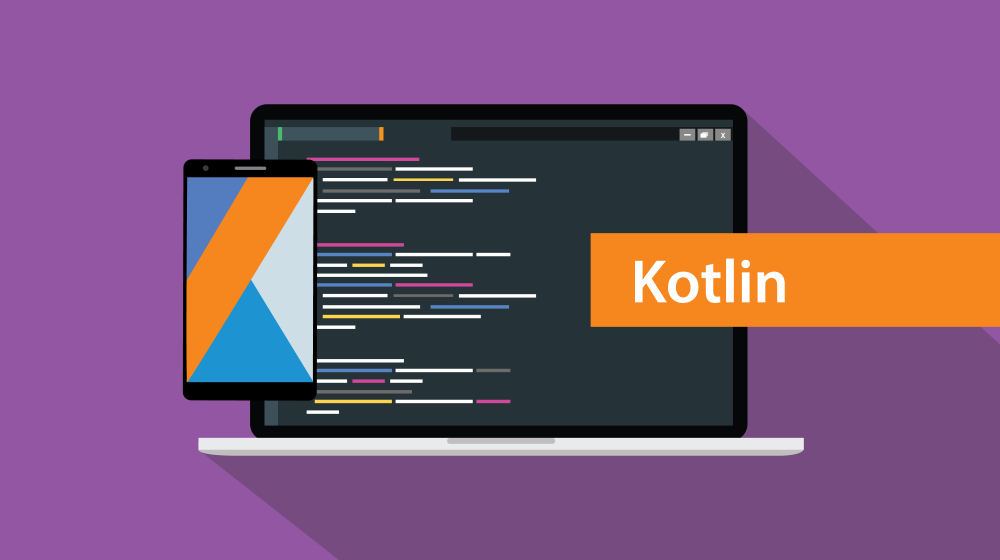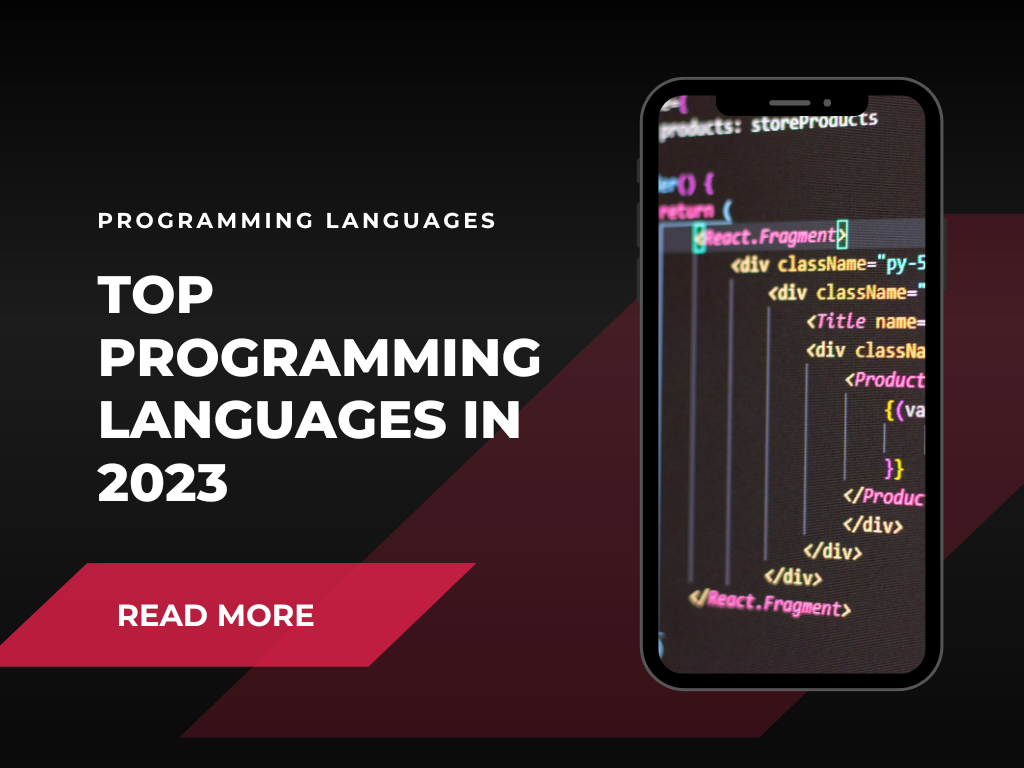Companies are always hunting for master programmers to complete their projects. As our world is increasingly becoming tech-based, the importance of programming is elevating.
Companies are developing new programming languages to remove obstacles coders face during work. But so many options for programming may confuse you, especially if you don't have experience.
Which language should you prefer to learn in 2024 and beyond? Which languages are dying away, and which ones are thriving? Which languages developers are modifying or updating? What are the modern trends in programming languages?
If these questions pop up in your mind whenever you think about learning to code, then keep reading this article. We answer all these questions and more in this piece.
Here Are The List of Programming Languages
1- Swift

Swift's story started when apple only used Objective C as its programming language. Objective C is an old language dating back to 1970. Apple software developers had to write long lines of code, which drained them of time and energy.
In 2014, Apple came with an open-source language called Swift to write software for Mac and Linux operating systems. The best thing is that it is also one of the best programming languages for ios.
You don't need to be an ace at programming to start using Swift. You only need to go through tutorials readily available and understandable for starters.
Additionally, it is interoperable with Objective C and compatible with IBM Bluemix and IBM Swift Sandbox. Apps developed using Swift are Mozilla Firefox, WordPress, Flappy bird (game), and SoundCloud.
Perks
- Clean syntax
- Faster than other languages
- Popular in less time
- Swift app developers earn an average salary of about $ 106,652 per year
Downsides
- Not compatible with older iOS versions
- Swift apps don't work alongside third-party software.
- Still a new programming language
2- JavaScript

Do you know over 97% of all sites on the web were created using JavaScript, and over 64% of developers use JavaScript?
Javascript is probably the most in-demand programming language out there.
It is an object-oriented programming language that allows developers to publish dynamic and engaging content and set up complicated features, such as animated graphics on the sites.
Developers use it for non-browser situations, as well as, web pages because it supports declarative and imperative paradigms.
Perks
- It can be integrated into diverse open-source software
- It can be used on the client and server side (with runtime environments like Node.JS)
- Faster than Java and simpler coding
- Interoperability
- Extensive features
- Supports highly compact executable programs
- Enables users to develop communication programs and games directly in the browser when paired with Node. JS.
Downsides
- Anyone can view and evaluate its code
- Its Document Object Model (DOM) always moves slowly and couldn't generate HTML quickly regardless of the speed of JavaScript’s interpretation
- Web browsers sometimes stop the code’s execution of JavaScript because it may be used to produce pop-up ads containing viruses
3- Go

Google developed Go, also called, Golang, in 2007 to build web apps and APIs. Go is a general-purpose, statically typed, assembled programming language.
Its syntax is similar to C language but has advanced features such as garbage collection, memory safety, CSP-style concurrency, and structural typing.
You can learn to use Go even if you are only a mid-level programmer who knows at least one other language. Go can be used to create cross-platform desktop and mobile apps in Dubai.
Perks
- Easy to learn
- Neat syntax
- Coding is reliable and simple
- High-efficiency
- Supportive community for sophisticated apps
Downsides
- Lacks flexibility
- No useful external modules
- No generics
- Don't support the argument and default overloading
- Less functional
- A new language with fewer resources
4- Java

Java is an object-oriented, class-based programming language. The popularity of the classic programming language Java is slowly decreasing as it has lost its position as the best programming language of 2015. It is the 2nd best programming language to develop android apps after Kotlin.
But it is still the fifth best in the list of programming languages per Stack Overflow. Nasa, Spotify, Netflix, LinkedIn, Amazon, Uber, and other corporations use Java.
Perks
- Assembled code can function on any platform
- Speedy and reliable
- Reduces cost
- Higher usage over years has fine-tuned the language
- Excellent community support
- Resources like libraries and tools
- Improves the app’s offerings and encourages innovation
- Used for nearly all operating systems, mobile apps, and software frameworks
- It can be used on all software frameworks, including big data
Downsides
- Time and effort-consuming due to the new vocabulary to learn
- Not ideal to develop cloud-based apps
- Oracle offers a Java development kit that asks for a licensing price
- Higher level language
- Strict syntax requirements
- Take up a lot of storage space
5- C/ C++

C is a general-purpose, high-level programming language developed as an extension of the C language. C++ is advanced with the capabilities of low-level memory manipulation. It is the 10th most commonly used programming language.
Its developers created it for software and large systems with embedded system programming and resource constraints. But it is also being successfully used for other purposes like video games, desktop apps, e-commerce web search or database servers, and performance-critical apps (space probes or telephone switches).
Perks
- C++ provides more control as compared to other languages
- Offers the STL or Standard Template Library
- Functional, efficient, and reliable
- It can be assembled for multiple systems
- It is object-oriented, generic, and imperative
- Dynamic memory
Downsides
- Complicated and practical
- Complex pointers and syntax makes debugging challenging
- Lack of garbage collection feature
- Less secure as their memory is “unsafe”
6- C#

C#, pronounced as C sharp, is a high-level, general-purpose, multi-paradigm programming language. It covers strong typing, static typing, functional, generic, lexically scoped, declarative, imperative, component-oriented, and object-oriented programming disciplines.
Once a top-class language, C# ‘s ranking declined in 2019 and 2020 but has beaten PHP again. It's no small feat to be ranked 5th as the most popular on the programming language’s list on the TIOBE index.
Perks
- Object-oriented nature makes it possible to create an app incrementally
- Supports more convenient management
- Its syntax looks like human language
- Benefits of utilizing visual studio for building apps
Downsides
- Depend on .NET, which sometimes doesn't sync well with the overall software suite and needs even greater skills
- Bad x-platform GUI
- A developer has to assemble the code entirely, even with little modifications
- Show many errors if you don't validate the code every time
7- Kotlin

JetBrains developed a general-purpose programming language Kotlin in 2011 as Project Kotlin. It launched its first module in 2016. Kotlin can work alongside Java and is compatible with functional programming languages
Developers build extensive Android, desktop, web, and backend apps using it. JetBrains aimed to make Kotlin better than Java, and its user base thinks they were successful.
Perks
- Superior compiler performance
- No need to write intensive codes like Java
- Offers better help with functional programming
- Comparatively easy to adopt
- Supports Java
- Kotlin drives most google apps
- Businesses like PostMates, Coursera, and Pinterest use this programming language
- The average annual income of Kotlin developers is 136, 000 dollars
Downsides
- Kotlin training is expensive if you switch from Java
- There are ewer Kotlin developers
- Sluggish compilation progress
- Lack of static keyword
Bottom Line
So, these are the top programming languages every developer should learn to ace the industry in 2024. Note that our list of programming languages wasn’t in any particular order. We just compiled some of the most cherished languages currently.
Most of the languages on our list are known as the languages of the future, including Python, JavaScript, R, Java, C#, C++, TypeScript, and Kotlin.
Programming languages are crucial as the foundation of every innovation as technology is constantly evolving.
Maven digital is a renowned mobile app development company based in Dubai but has extended to other parts of the world, like the UK and the USA.
Our developers believe in hard work and honesty. Having worked with big brands like Jino, Rose Aljazeera, PicPax, and Injazat, Maven Digital knows what it takes to build a flawless, performant, and modern app solution for your business.
What are you waiting for? Contact us today to start a journey of fearless growth!
FAQs
1- What is a programming language?
A programming language refers to a language developers use to create software, scripts, or other programs for systems to run. They are notation systems that can be based on text or graphics.
2- What is the programming language most people use for web development?
Python is the most widely used programming language with a wide range of frameworks available like Flaska and Django. Python is user-friendly and, therefore, ideal for beginners.
3- What are the five core coding languages?
Python, SQL, Java, C/C++, and JavaScript are the five primary coding languages.
4- What factors should I consider before choosing a programming language for my project?
Consider these aspects to pick a programming language for your app/software.
- Complexity
- Types of the app
- What will be the platform/OS of the app?
- Language’s performance
- Security
- support








